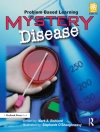This innovative volume is an extended intellectual conversation about the ways personal lives are being undone and remade today. Examining the ethnography of the modern subject, this preeminent group of scholars probes the continuity and diversity of modes of personhood across a range of Western and non-Western societies. Contributors consider what happens to individual subjectivity when stable or imagined environments such as nations and communities are transformed or displaced by free trade economics, terrorism, and war; how new information and medical technologies reshape the relation one has to oneself; and which forms of subjectivity and life possibilities are produced against a world in pieces. The transdisciplinary conversation includes anthropologists, historians of science, psychologists, a literary critic, a philosopher, physicians, and an economist. The authors touch on how we think and write about contingency, human agency, and ethics today.
Table of Content
Acknowledgments
List of Contributors
Introduction: Rethinking Subjectivity
João Biehl, Byron Good, and Arthur Kleinman
PART I. TRANSFORMATIONS IN SOCIAL EXPERIENCE AND SUBJECTIVITY
1. The Vanishing Subject: The Many Faces of Subjectivity
Amélie Oksenberg Rorty
2. The Experiential Basis of Subjectivity: How Individuals Change in the Context
of Societal Transformation
Arthur Kleinman and Erin Fitz-Henry
3. How the Body Speaks: Illness and the Lifeworld among the Urban Poor
Veena Das and Ranendra K. Das
4. Anthropological Observation and Self-Formation
Paul Rabinow
PART II. POLITICAL SUBJECTS
5. Hamlet in Purgatory
Stephen Greenblatt
6. America’s Transient Mental Illness: A Brief History of the Self-Traumatized
Perpetrator
Allan Young
7. Violence and the Politics of Remorse: Lessons from South Africa
Nancy Scheper-Hughes
PART III. MADNESS AND SOCIAL SUFFERING
8. The Subject of Mental Illness: Psychosis, Mad Violence, and Subjectivity in Indonesia
Byron J. Good, Subandi, and Mary-Jo Del Vecchio Good
9. The “Other” of Culture in Psychosis: The Ex-Centricity of the Subject
Ellen Corin
10. Hoarders and Scrappers: Madness and the Social Person in the Interstices of the City
Anne M. Lovell
PART IV. LIFE TECHNOLOGIES
11. Whole Bodies, Whole Persons? Cultural Studies, Psychoanalysis, and Biology
Evelyn Fox Keller
12. The Medical Imaginary and the Biotechnical Embrace: Subjective Experiences of
Clinical Scientists and Patients
Mary-Jo Del Vecchio Good
13. “To Be Freed from the Infirmity of (the) Age”: Subjectivity, Life-Sustaining
Treatment, and Palliative Medicine
Eric L. Krakauer
14. A Life: Between Psychiatric Drugs and Social Abandonment
João Biehl
Epilogue. To Live with What Would Otherwise Be Unendurable: Return(s) to Subjectivities
Michael M. J. Fischer
Index
About the author
João Biehl is Associate Professor of Anthropology at Princeton University. He is the author of Vita: Life in a Zone of Social Abandonment (UC Press) and Will to Live: AIDS Therapies and the Politics of Survival. His website is www.joaobiehl.net. Byron Good is Professor of Medical Anthropology in the Departments of Social Medicine and Anthropology at Harvard University. He is the author of Medicine, Rationality and Experience: An Anthropological Perspective and co-editor of several volumes, including Culture and Depression (UC Press). Arthur Kleinman is Professor and Chair of Anthropology at Harvard University. He is the author of several books, including Patients and Healers in the Context of Culture; Writing at the Margin: Discourse Between Anthropology and Medicine (both from UC Press); and, most recently, What Really Matters: Living a Moral Life amidst Uncertainty and Danger. Among his coedited volumes are Social Suffering (UC Press) and Global Pharmaceuticals.












